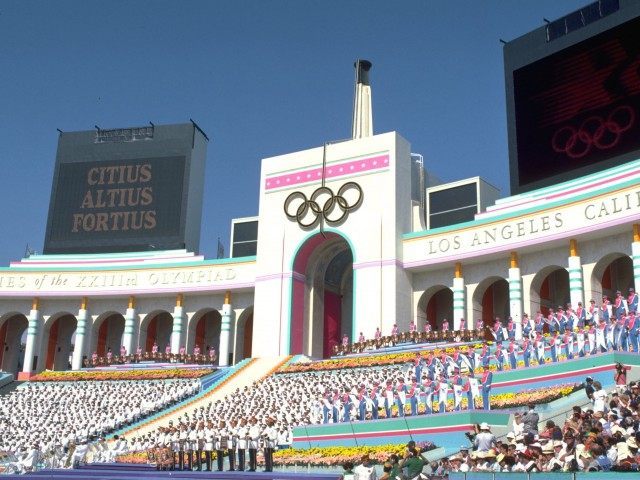California’s top demographer, Joel Kotkin, warned this week about the financial risks of Los Angeles hosting the 2024 Olympics without local corporate underwriting.
According to Kotkin, the Los Angeles 1984 Summer Olympics “were brilliantly run, required relatively little city expenditure and turned a profit,” but the “Los Angeles of today barely resembles the vibrant, optimistic city of 30 years ago.”
Kotkin refers to the recent blue-ribbon Los Angeles 2020 Commission, which recently looked at the economic viability of the city and the prospects over the next five years. The authors summed up their findings that L.A. is “the city where the future once came to happen,”…but it is now… “living the past and leaving tomorrow to sort itself out.”
The L.A. 2020 Commission’s report revealed that the City of Los Angeles:
- is the only major metropolitan areas in the U.S. to show a net decline in jobs over the past two decades;
- struggles with chronic budget shortfalls and as a result has dramatically cut services and investment in infrastructure, both physical and technological;
- has too many people living in poverty due to unemployment and low wages;
- has a city power and water company with extremely high utility rates;
- has seen its port’s handling of total U.S. goods drop over 5 percentage points in the last 10 years;
- has seen spending on pensions grow from 3% to 18% of budget in the last 12 years;
- is very unattractive for any employer to locate large numbers of workers; and
- has terrible public education.
Kotkin believes that with the economic implosion of these statistics since 1984, trying to host the Olympics as a form of economic development “smacks of a Hail Mary pass.”
Although the first two L.A. Summer Olympics Games in 1932 and 1984 were profitable, the 1976 Montreal Games, 1996 Atlanta Games and 2004 Athens Games caused those cities to suffer huge economic losses and led to “periods of decline.”
Although Beijing and London didn’t lose an inordinate amount of money in 2008 and 2012, it “can more accurately be said to have survived, rather than prospered” from their Olympiads.
Kotkin argues that it is always “an alluring temptation to use sporting events to enhance a city’s standing, rather “than improving basic infrastructure, reforming education or easing growth-strangling regulation.” He believes such events “may be important to local elites, and may thrill local residents, but they rarely provide the kind of economic boost that can reverse the decline of a fading city.”
In 1984, Mayor Tom Bradley could call on the city’s twelve Fortune 500 firms to help sponsor the Games and provide management expertise. But since that time, the number of big firms in the city has fallen to three. With the departure of Lockheed, Northrup Grumman, Occidental Petroleum and Toyota, urban analyst Aaron Renn commented that LA’s once-vaunted corporate community is “a shell of its former self.”
Kotkin suggests: “The weakening of the private sector, and the parallel rise of almost complete power of city employee unions, are adequate causes for skepticism about the likelihood that Mayor Garcetti and the labor-dominated City Council could produce a profitable Games.” In 1984 the city had an “ironclad agreement” that none of the cost overruns would be borne by taxpayers; no such arrangement is in place for 2024.
Kotkin worries about L.A.’s deteriorating infrastructure over the last 30 years. “The roads only carry about the same proportion of traffic as three decades ago (despite all the transit investments),” but are in such poor shape that the average L.A. motorists spends $832 a year in vehicle maintenance, more than “double the national average of $377.”
According to UCLA, Los Angeles has suffered a 3.1 percent decline in payroll employment growth since 1990, the largest decline of the 32 largest metropolitan areas in America. Once an aerospace industrial powerhouse, “the City of Angels has seen its once diverse industrial base erode rapidly, from employing 900,000 a decade ago to 363,900 today.”
Kotkin suggests a reality check for the City of Los Angeles: “Entrepreneurs ultimately matter more than sports stars.” He adds: “Most Hail Marys are, after all, in vain.”

COMMENTS
Please let us know if you're having issues with commenting.